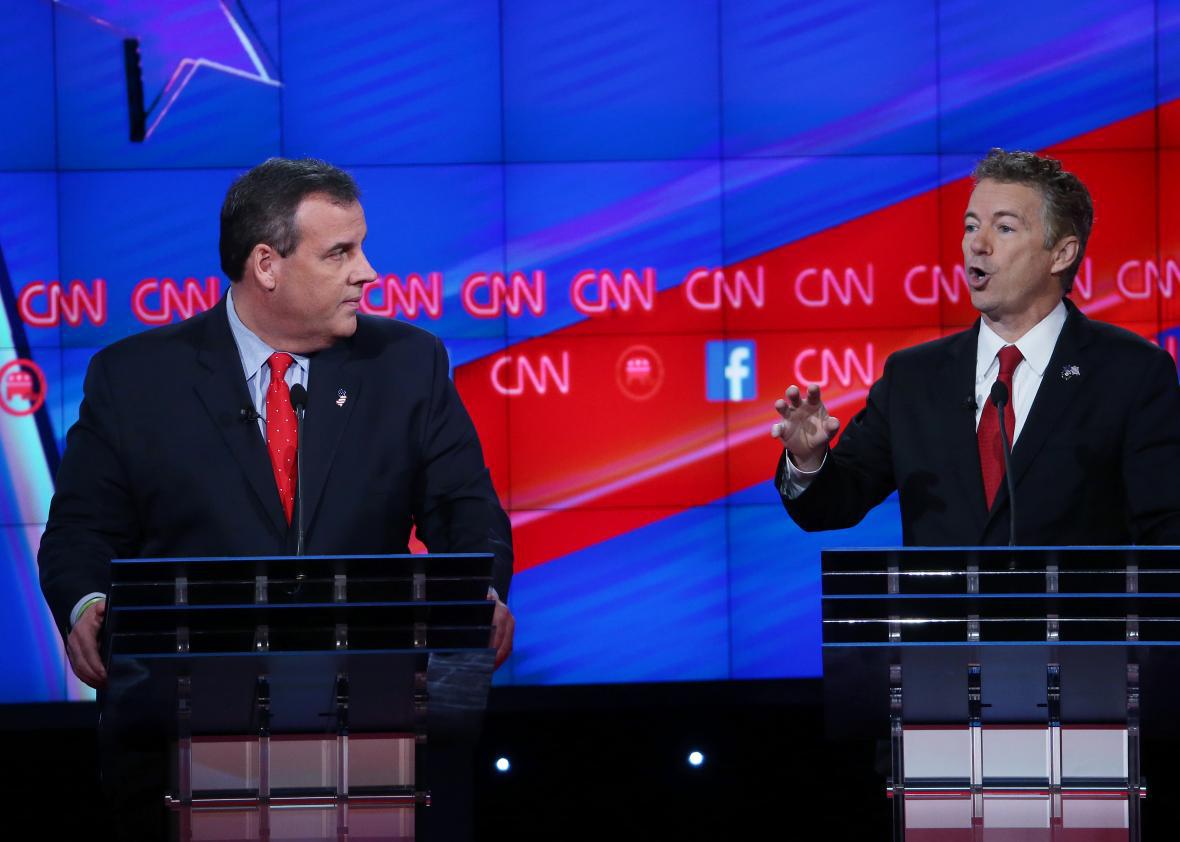Fox Business Networks’ decision to drop Kentucky Sen. Rand Paul from the main stage at Thursday night’s Republican debate, as well as Paul’s decision not to participate in the undercard event, has eliminated the sole dissenting voice from what could be called the “bomb the shit of them” consensus in the Republican field.
The libertarian senator’s isolationist (though he rejects the term) foreign-policy views stand out from the rest of the field and have generally been viewed as a liability at a time when voters are concerned about terrorism. Though he’s modified his stances a bit during the campaign and he’s not actually that far outside the mainstream when it comes to the basics of Syria—like virtually every candidate, he favors airstrikes and providing weapons to Kurdish fighters and restrictions on refugees—it’s clear that Paul, who once staged a 13-hour filibuster over the administration’s drone policy, views the problem of fighting terrorism quite differently from his rivals and has been willing to challenge party orthodoxy.
Paul has blamed Republican hawks for fostering the rise of ISIS by supporting the arming of Syrian rebel groups. (This prompted a cranky Wall Street Journal editorial board to blame him for creating ISIS.) He tussled with Chris Christie in the last debate over the need for aggressive domestic surveillance (Paul’s against it). He’s firmly rejected setting up a no-fly zone in Syria. And while he’s publicly changed his tune on support for Israel, the Iran deal, and defense spending to be more palatable to GOP voters, his heart doesn’t really seem in it. (That’s probably part of his problem: Paul has never come across as hawkish enough for the Republican base or dovish enough for the libertarians who backed his father’s campaign.)
There’s plenty to object to in Paul’s worldview. His argument that there’s little meaningful distinction between the armed groups fighting in Syria is inaccurate. His views on foreign aid are both morally and strategically short-sighted. But his absence from the conversation tonight is regrettable.
Without Paul on the stage, the debate will likely come down to five candidates offering nearly identical, somewhat beefed-up versions of what the U.S. is already doing to combat ISIS, plus incoherent wildcards Donald Trump and Ben Carson, plus a lot of attempts to seem tougher and more willing to go to war than the other guys.
One strange feature of this election is that while voters are enormously dissatisfied with the Obama administration’s handling of foreign affairs and terrorism, the two candidates offering meaningful alternatives—uber-hawkish Lindsey Graham on one end of the spectrum and Paul on the other—have failed to make a dent in the polls. Though their views couldn’t be more different, both forced voters to confront the sacrifices and drawbacks involved in military action. Promising victory through tough talk and more bombs has proven to be the more effective campaign strategy, but it’s not solving much on the ground.
